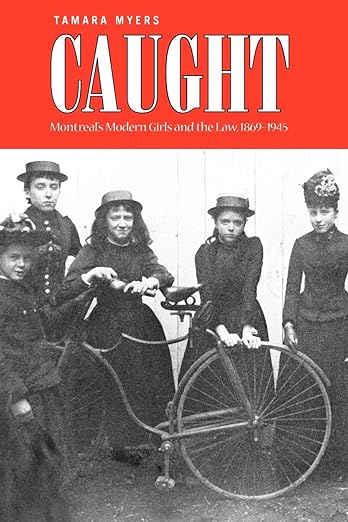
From the late nineteenth century to the Second World War, a ‘young and modern’ girl problem emerged in Montreal in the context of social and cultural turmoil. In Caught, Tamara Myers explores how the foundation and implementation of Quebec’s juvenile justice system intersected with Montreal’s modern girl. Using case files from the juvenile court and institutional records, this study aims to uncover the cultural practices that transformed modern girls into female delinquents.
From reform schools of the nineteenth century to the juvenile court era of the early twentieth, juvenile justice was a key disciplinary instrument used to maintain and uphold the subordination of adolescent girls. Caught exposes the attempts made by the juvenile justice system of the day to curb modern attitudes and behaviour; at the same time, it reveals the changing patterns of social and family interaction among adolescent girls. Myers also uncovers the evolving social construction of these young culprits – les jeunes filles modernes with their penchant for la vie legere – as generated by parents, church authorities, women’s groups, social workers, the media, and juvenile justice agents. She illuminates the rich texture of these girls’ public and private lives in the first half of the twentieth century, humanizing the stories of girls who were condemned for being too modern as they worked, played, and resisted the authority of parents, community, and the law.